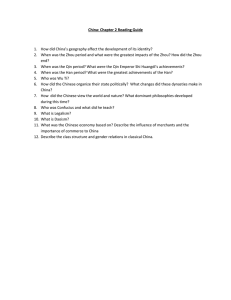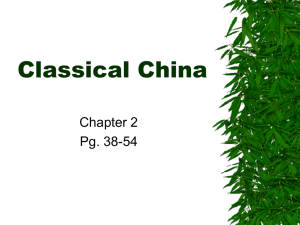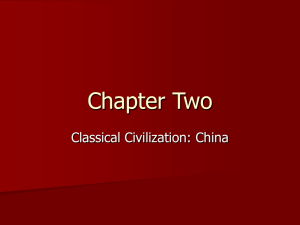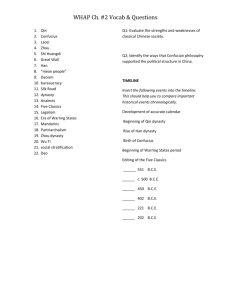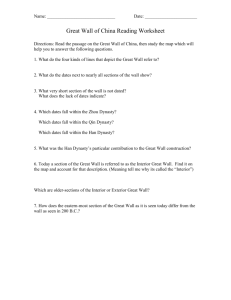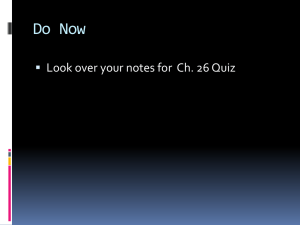Chapter 2 Answer the following questions as a short review
advertisement
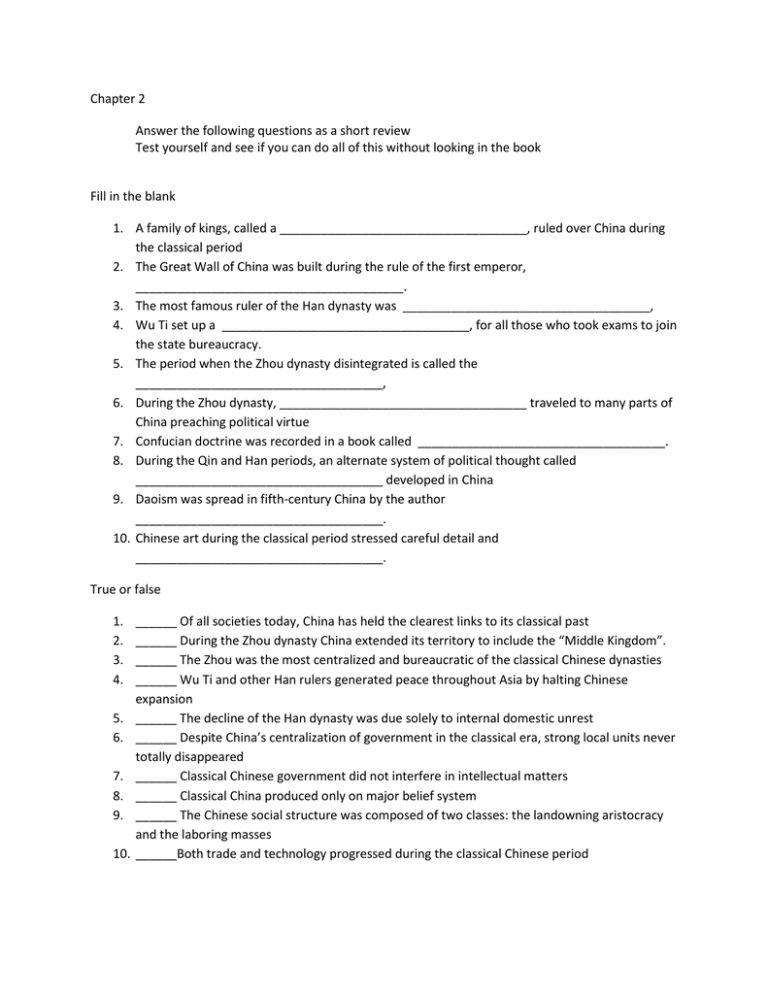
Chapter 2 Answer the following questions as a short review Test yourself and see if you can do all of this without looking in the book Fill in the blank 1. A family of kings, called a ____________________________________, ruled over China during the classical period 2. The Great Wall of China was built during the rule of the first emperor, _______________________________________. 3. The most famous ruler of the Han dynasty was ____________________________________, 4. Wu Ti set up a ____________________________________, for all those who took exams to join the state bureaucracy. 5. The period when the Zhou dynasty disintegrated is called the ____________________________________, 6. During the Zhou dynasty, ____________________________________ traveled to many parts of China preaching political virtue 7. Confucian doctrine was recorded in a book called ____________________________________. 8. During the Qin and Han periods, an alternate system of political thought called ____________________________________ developed in China 9. Daoism was spread in fifth-century China by the author ____________________________________. 10. Chinese art during the classical period stressed careful detail and ____________________________________. True or false 1. 2. 3. 4. 5. 6. 7. 8. 9. 10. ______ Of all societies today, China has held the clearest links to its classical past ______ During the Zhou dynasty China extended its territory to include the “Middle Kingdom”. ______ The Zhou was the most centralized and bureaucratic of the classical Chinese dynasties ______ Wu Ti and other Han rulers generated peace throughout Asia by halting Chinese expansion ______ The decline of the Han dynasty was due solely to internal domestic unrest ______ Despite China’s centralization of government in the classical era, strong local units never totally disappeared ______ Classical Chinese government did not interfere in intellectual matters ______ Classical China produced only on major belief system ______ The Chinese social structure was composed of two classes: the landowning aristocracy and the laboring masses ______Both trade and technology progressed during the classical Chinese period
